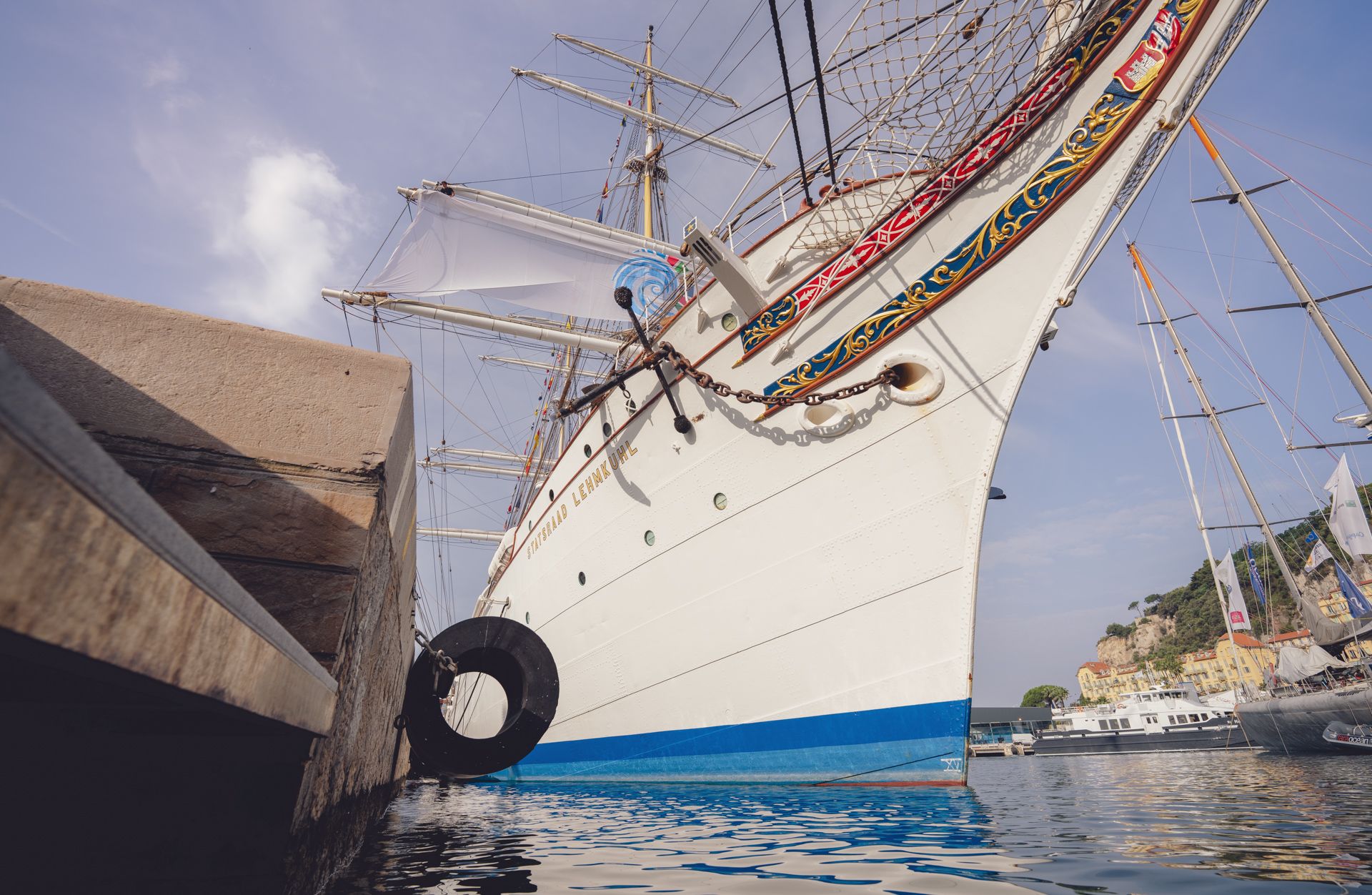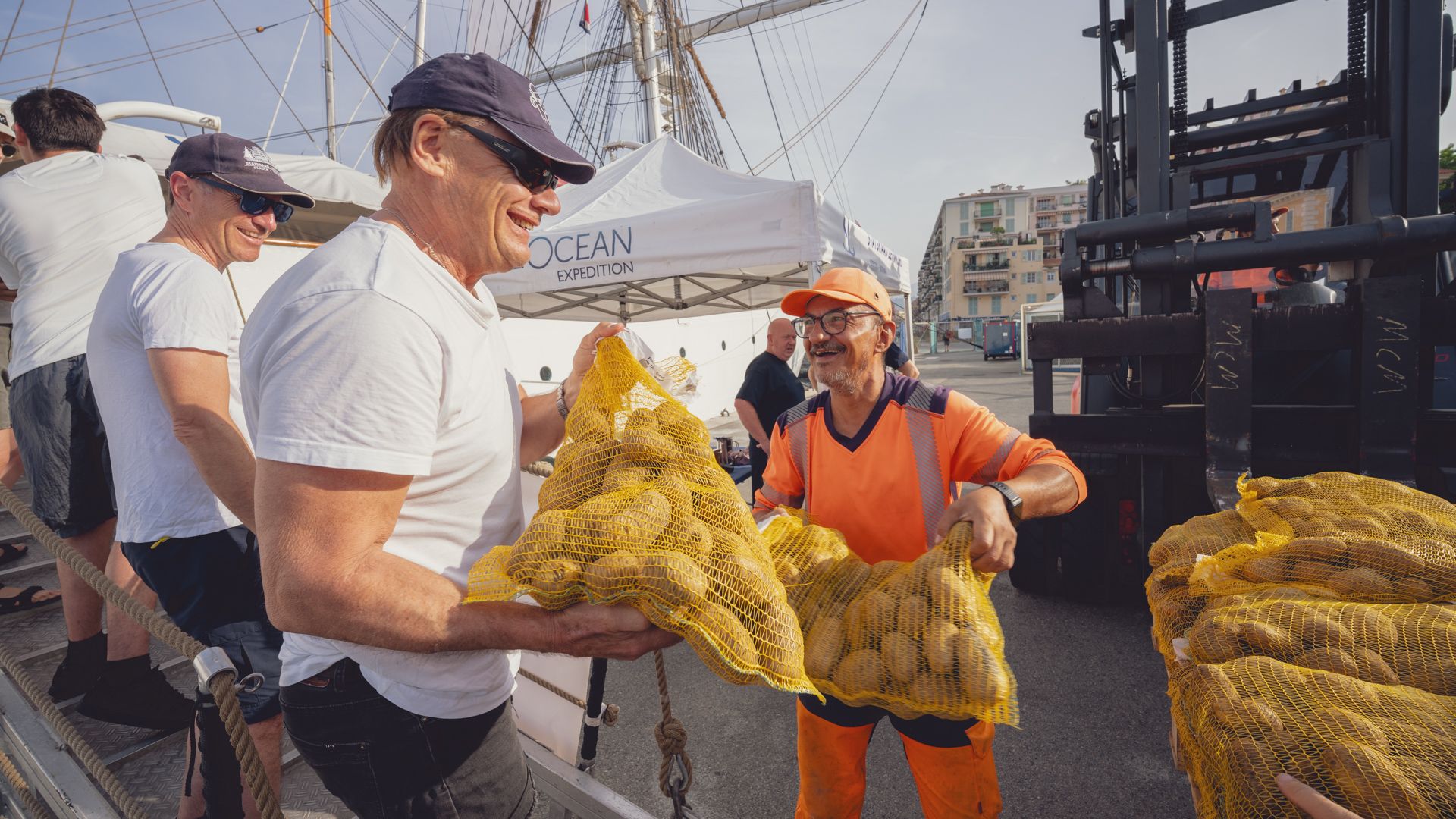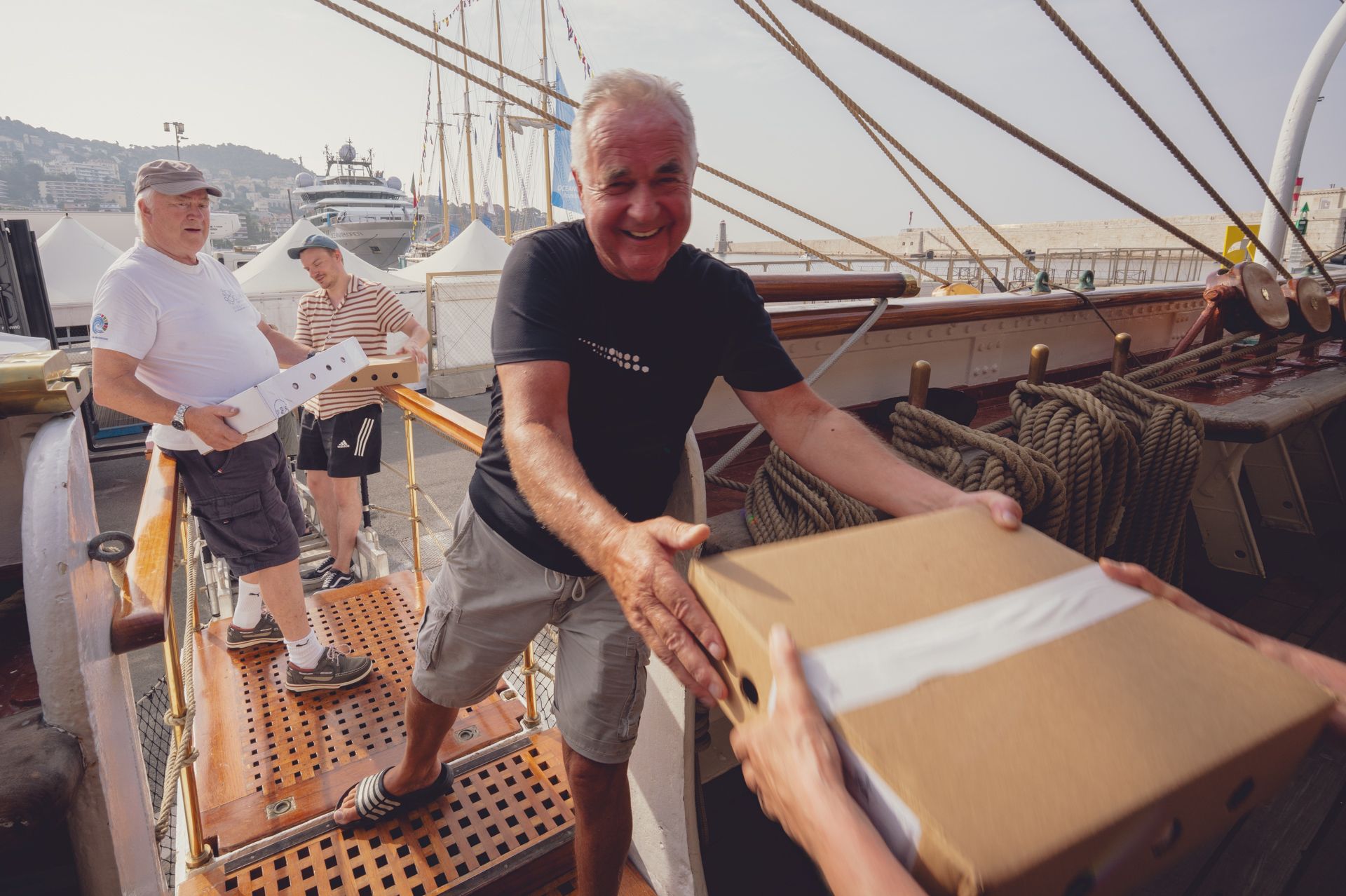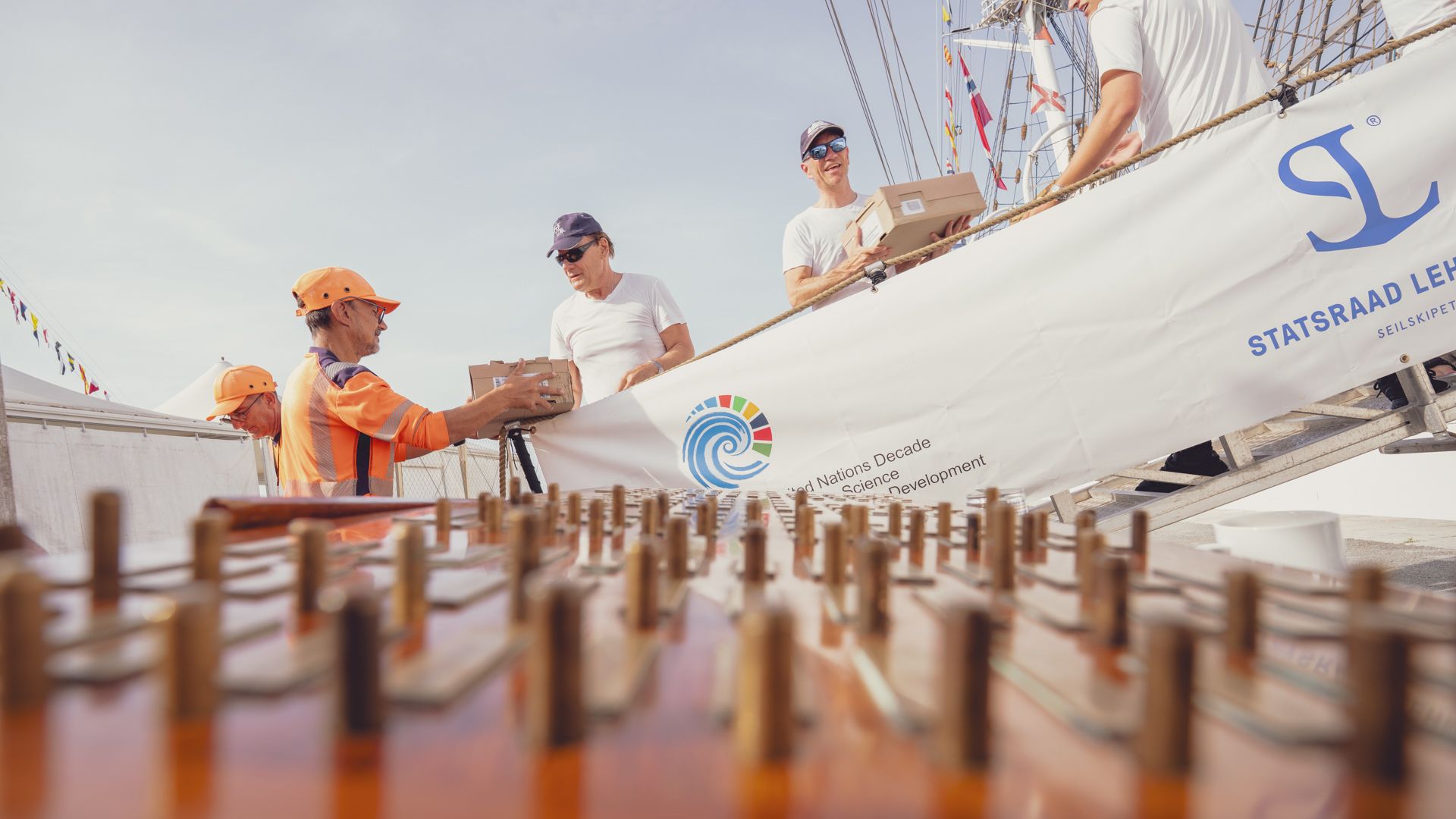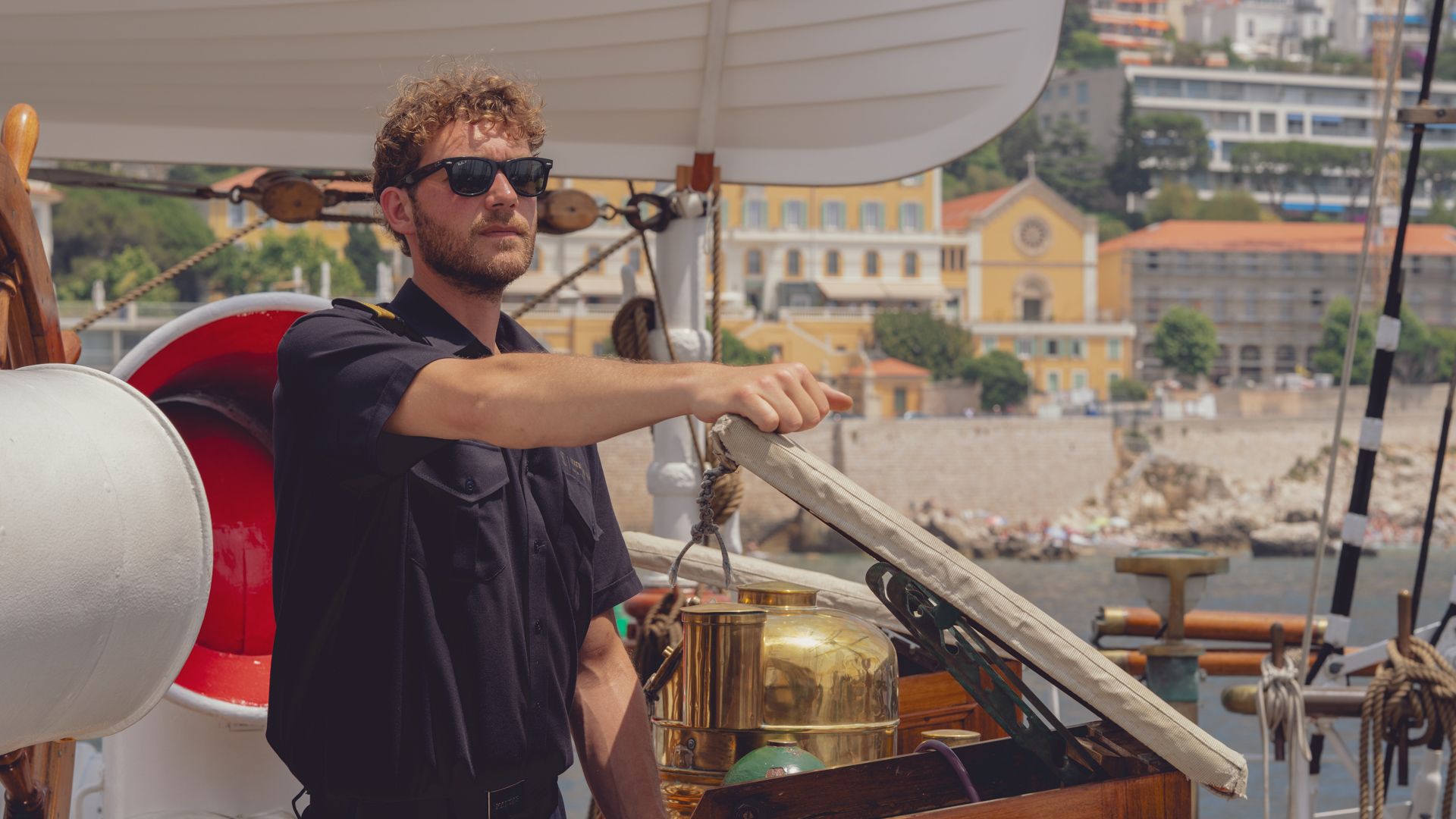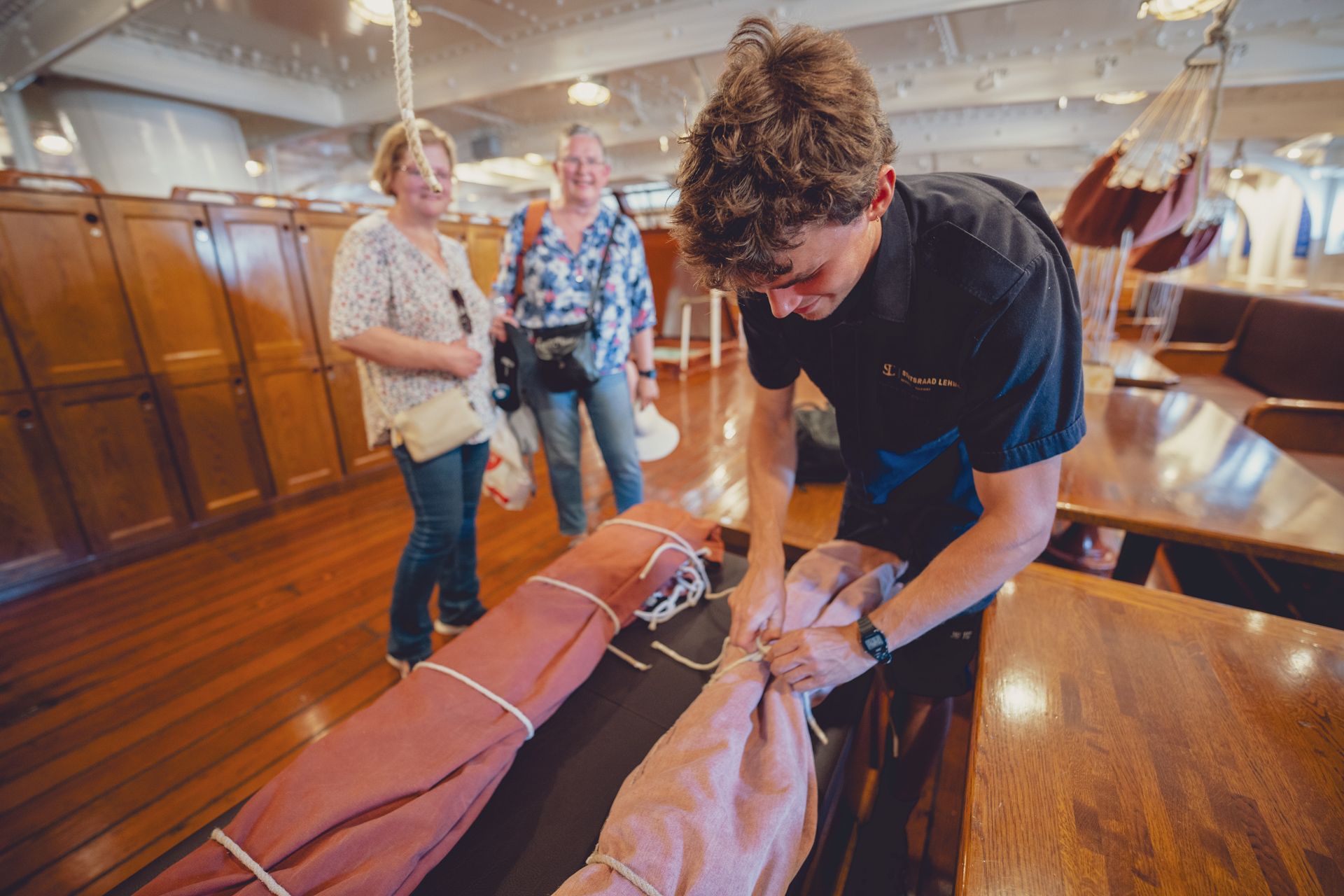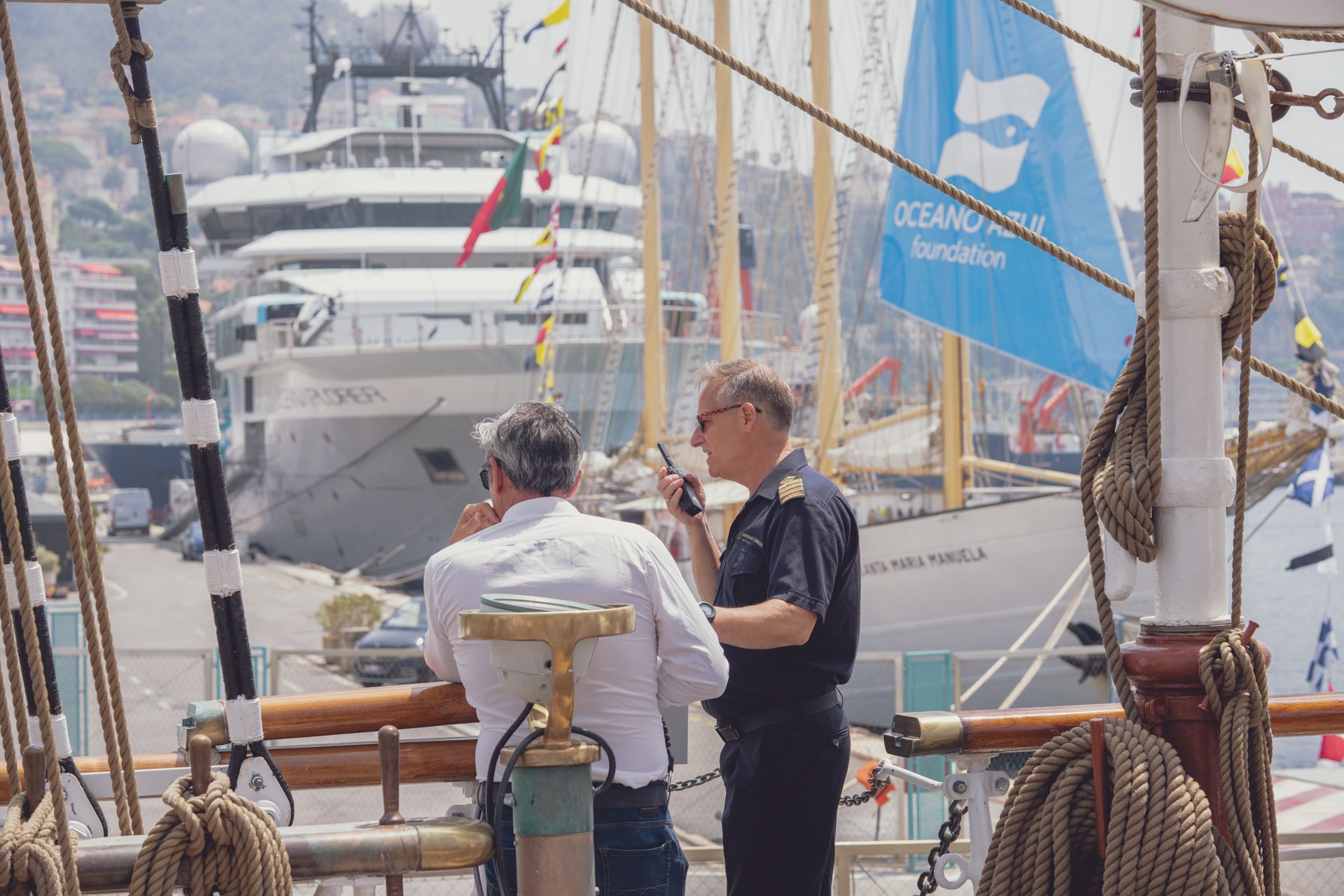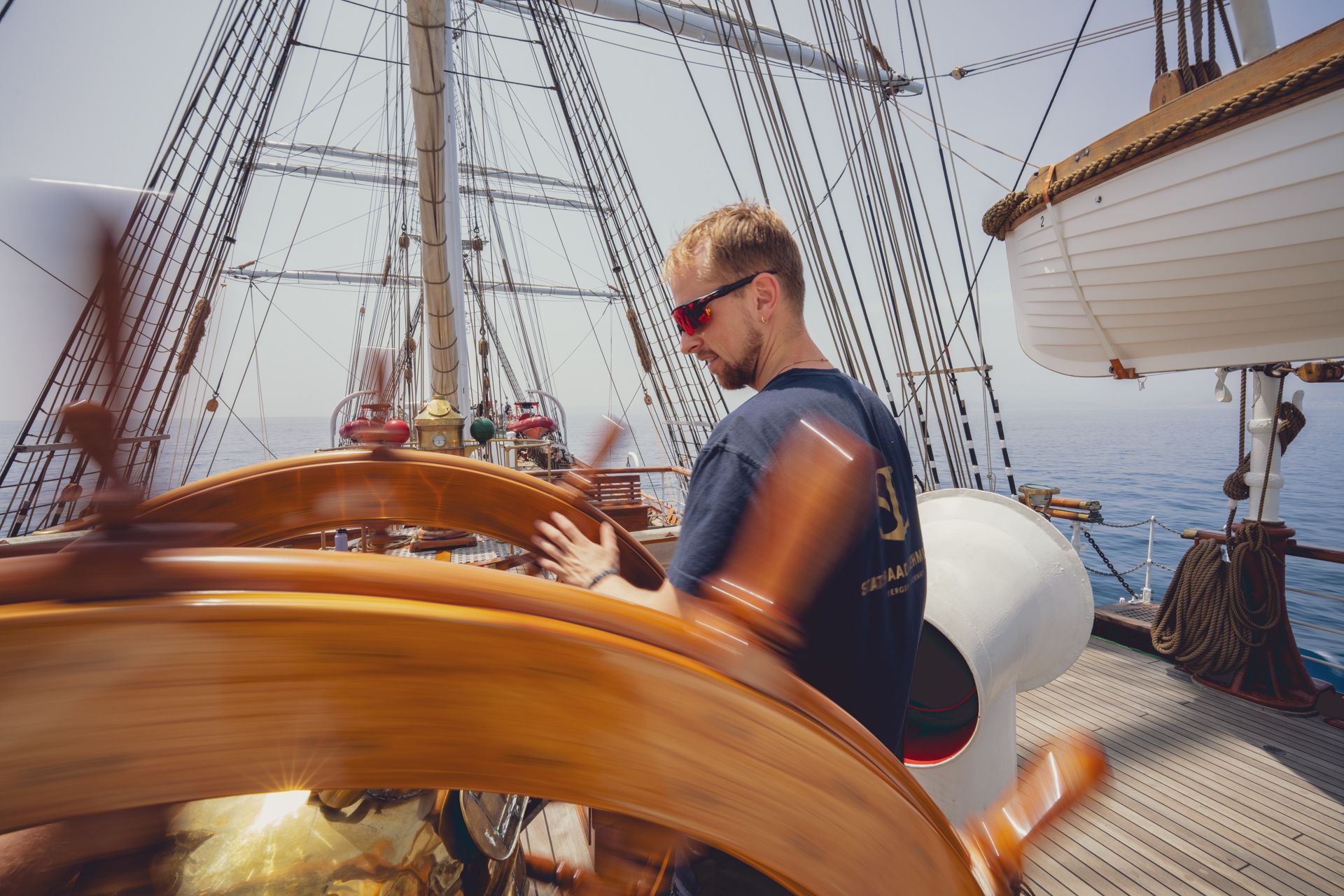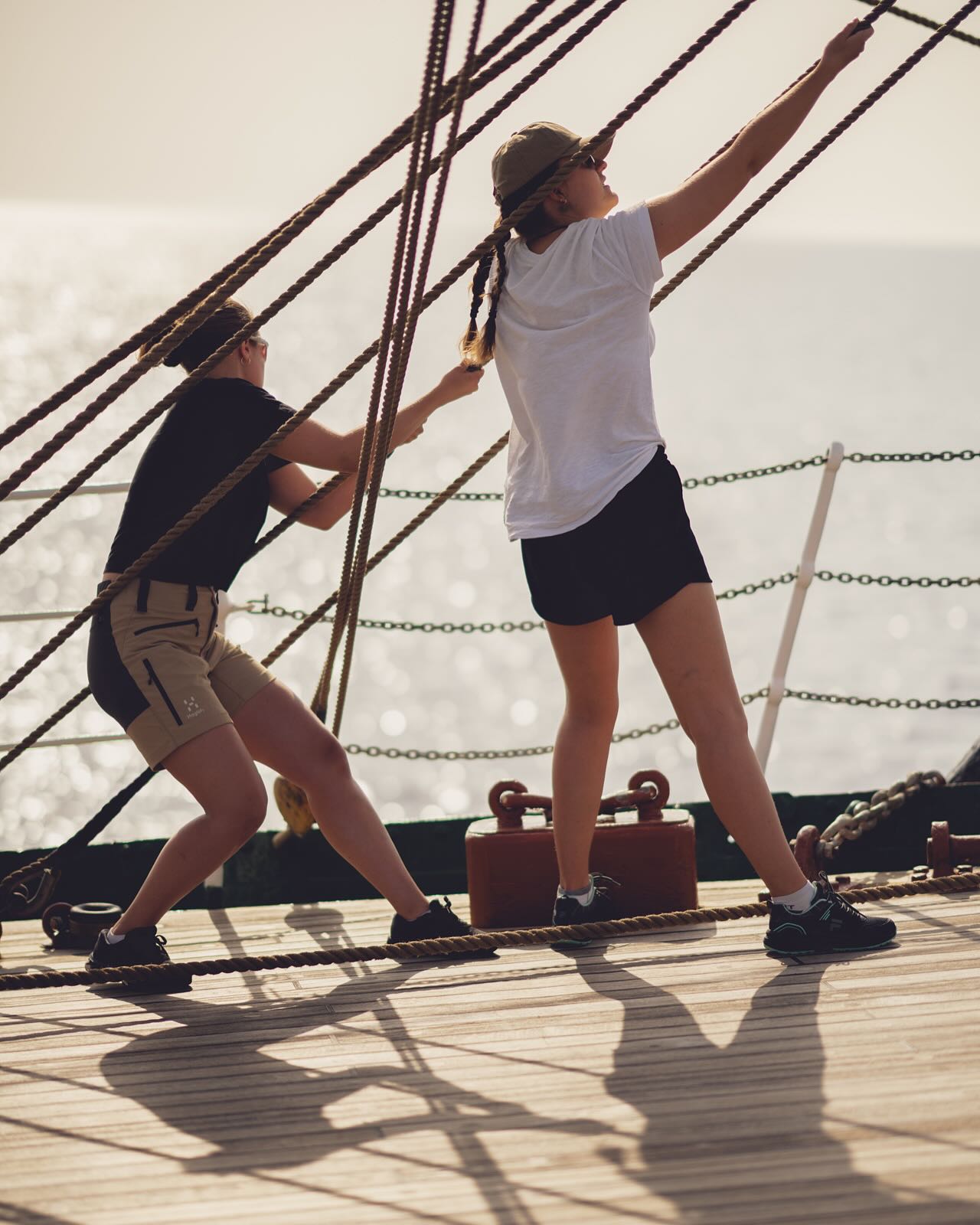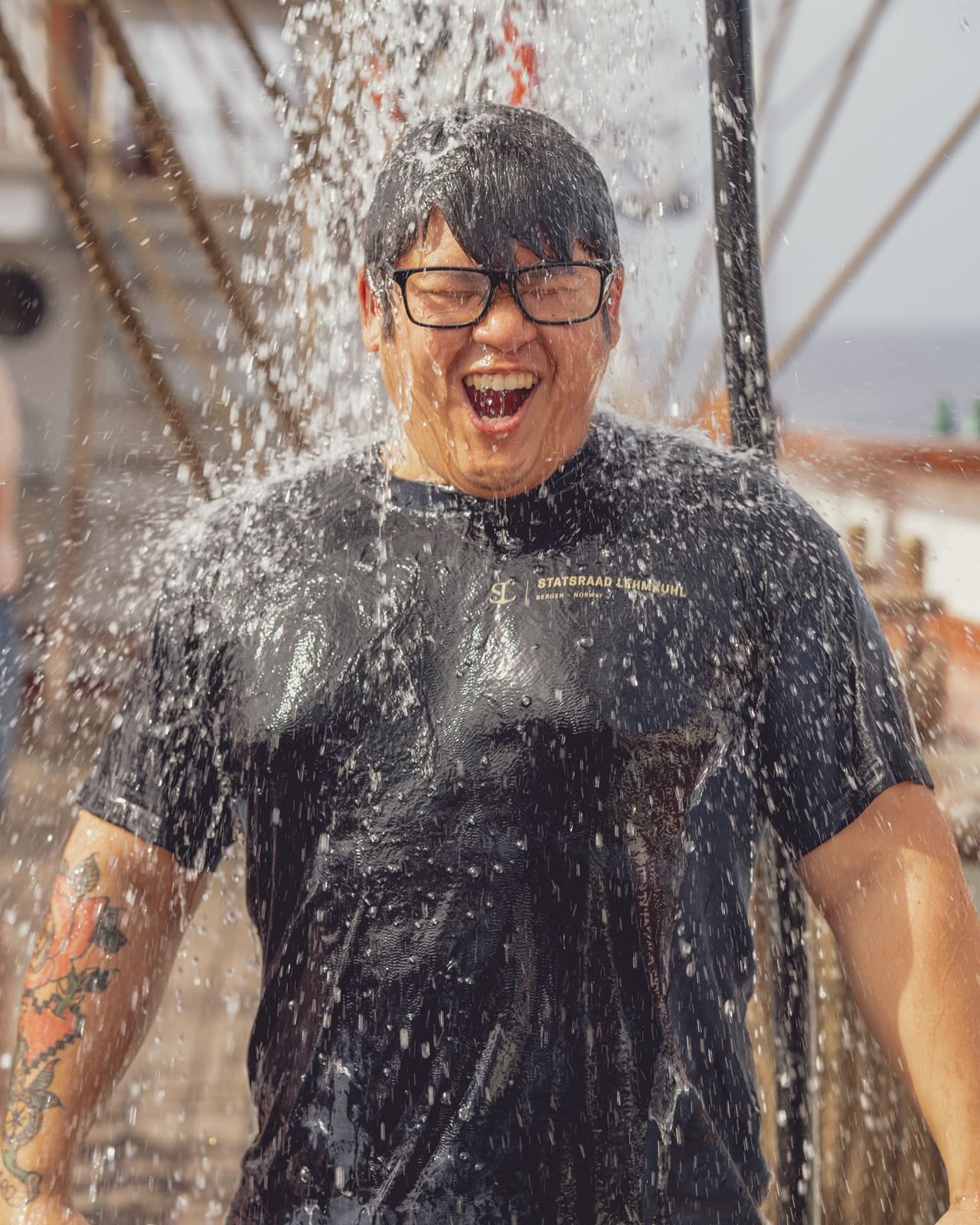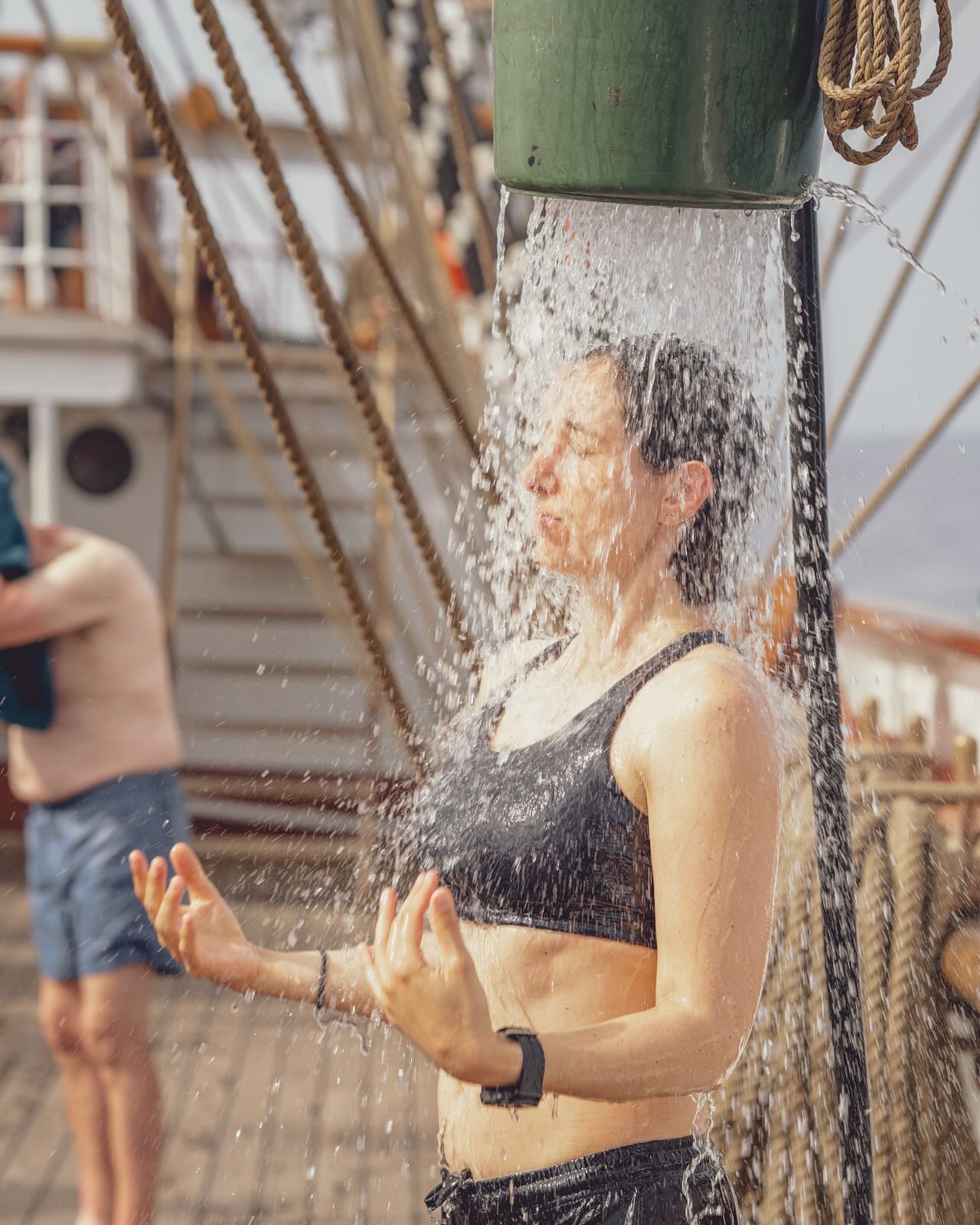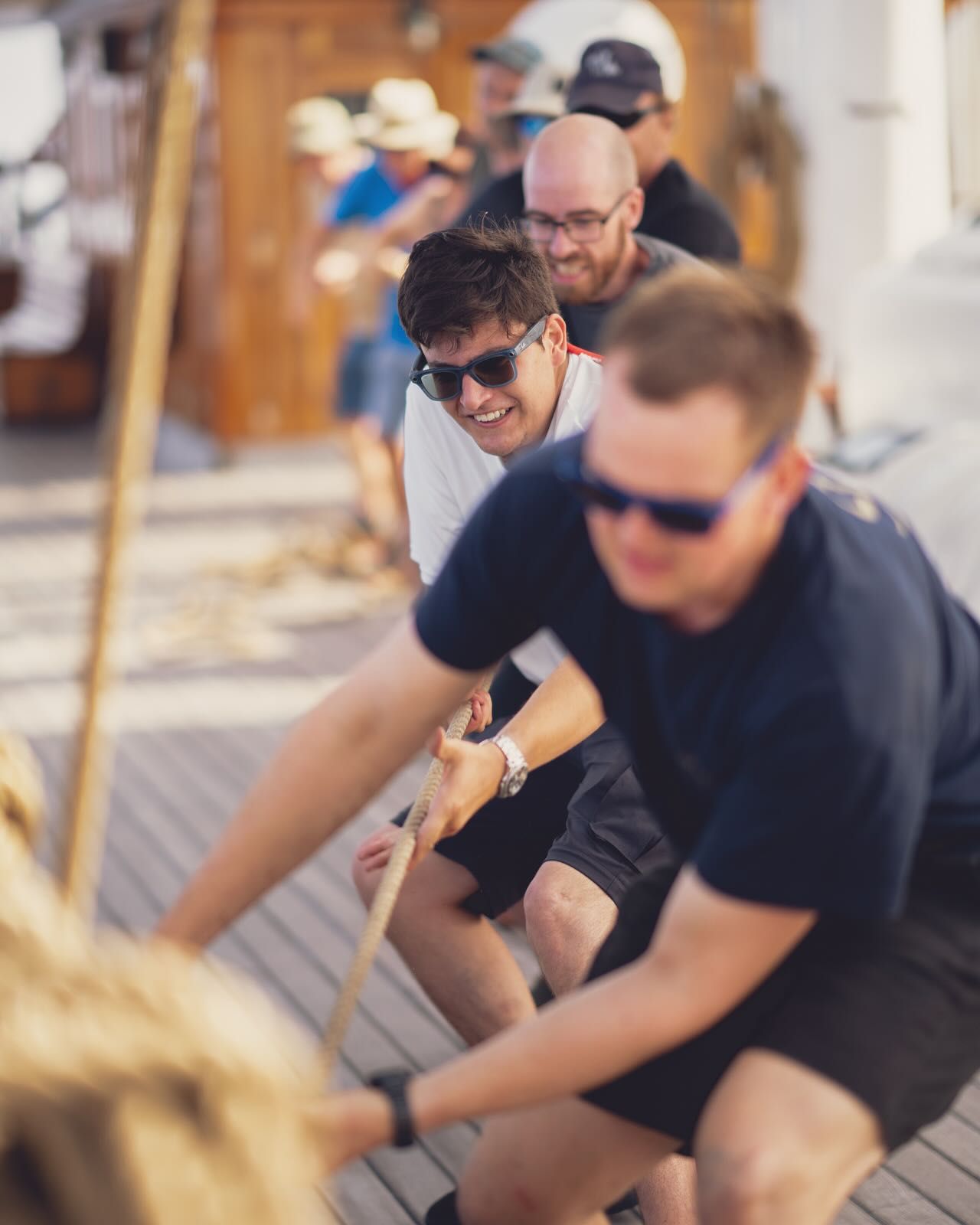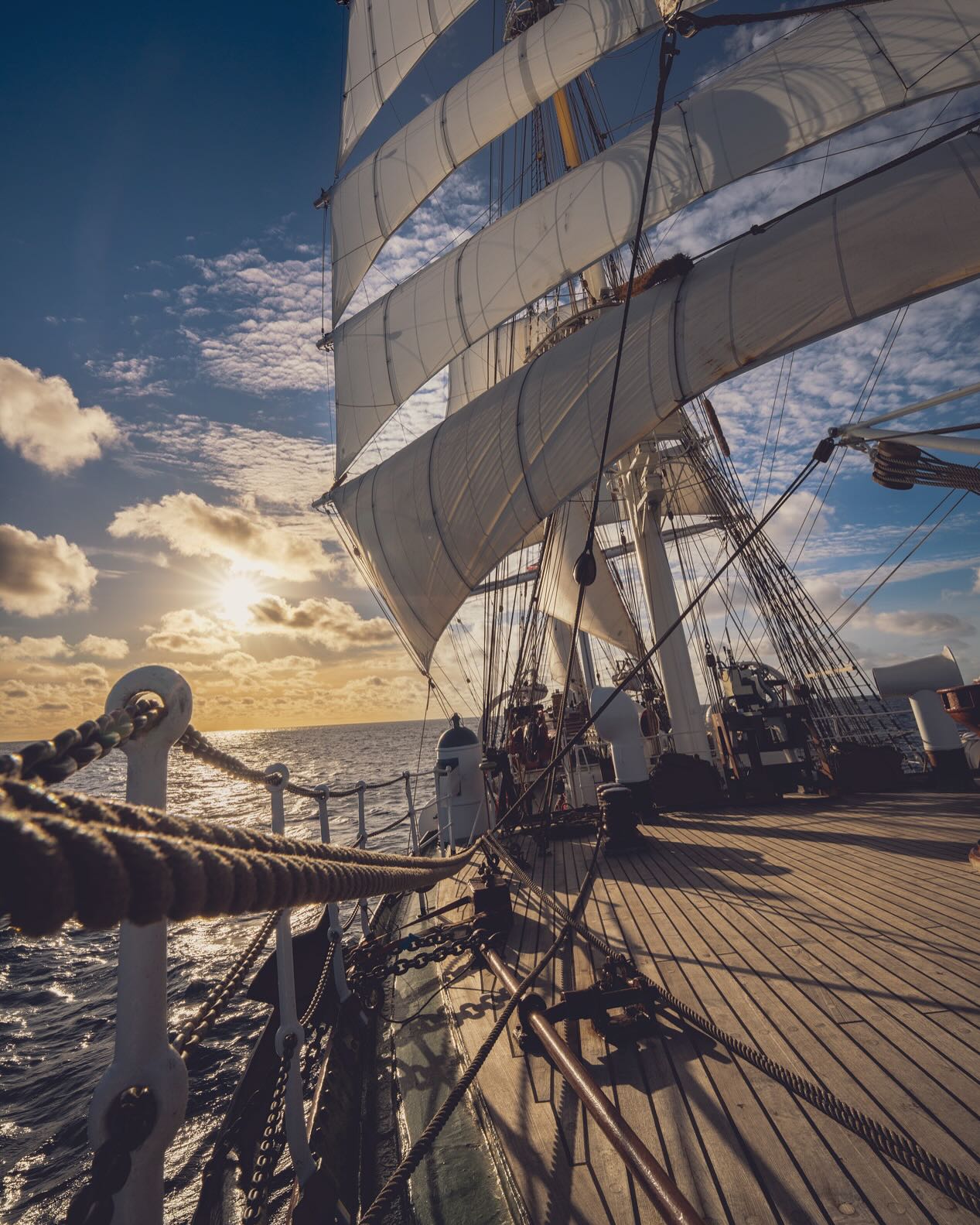While the UN Ocean Conference took place in Nice this June, Statsraad Lehmkuhl received a special visit from the rector of The Arctic University of Norway in Tromsø, and two students who, in August, will board the ship for its voyage through the Northwest Passage.
The visit from Tromsø marks the start of the teaching and research project Arctic Future Pathfinders, in which 120 students and 40 researchers come together on board Statsraad Lehmkuhl.
– It is only natural that it is the Arctic University of Norway (UiT) that take the lead through the Northwest Passage. After all, we are an Arctic university, says Dag Rune Olsen, director of UiT, who emphasizes the importance of bringing together young people from diverse academic and cultural backgrounds to learn and collaborate.
Teaching and sailing
The project is part of the One Ocean Expedition and combines academic instruction with practical sailing and fieldwork in one of the world’s most vulnerable and geopolitically significant regions.
– We strongly believe that by bringing these young people together, we will enable them to pursue new knowledge of vital importance for the Arctic, says Olsen.

Statsraad Lehmkuhl departed from Nice on June 14, and the students will rejoin the ship in Nuuk, Greenland, at the beginning of August. During the voyage through the Northwest Passage, students will not only study climate, ocean law, geopolitics, and Indigenous knowledge - they will also learn to sail.
– They are not passengers, says Olsen. They also have to take part in the ordinary work at deck. So setting the sails and things like that.
Universities of the Arctic
Teaching will take place in group settings as well as through hands-on fieldwork. One instrument Olsen is particularly excited for the students to use is the hydrophone - underwater microphones that allow them to record sounds below the surface. On board a sailing vessel, this equipment can pick up the sounds of marine life without the interference of engine noise.
– We will have a much more complete picture with respect to, for example, the climate change and its impact on the ocean environment, says Olsen.
The course is developed in collaboration with universities in the Universities of the Arctic network and with indigenous representatives from Greenland, Canada, and Alaska. Central to the program is the principle of "two-eyed seeing" - the integration of scientific methodology and indigenous ways of knowing.

Knowing the environment
Two of the students joined Olsen on board in Nice. Soraya Grigoriou Gratton from France studies environmental and ocean law at UiT:
– I love the sea, and I care very much about the Arctic – about protecting the ocean. And it seems like the course really merges the two together, sailing and trying to figure out how to create a sustainable Arctic future, she says.

For Soraya, it's crucial to truly experience the environment one studies:
– You can only protect what you know. So getting to sail through the Northwest Passage and really see for myself what it looks like... I think it will help me be better at my job and do better research.
For Mathis Jacob Schulz from Germany, a master’s student in peace and conflict studies in Tromsø, the journey is both an academic and personal opportunity:
– It is, I feel, a singular event... not an everyday thing that you could just do. And also that we are on a sailing vessel – it’s also very, very nice to gain some experience on the sea.

He is writing his thesis on geopolitical shifts in the Arctic:
– The journey is highly relevant to my research... not only because of climate change and the necessity to act, but also because of economic and political interests here.
Getting Ready
Both Soraya and Mathis are deeply engaged in the interplay between culture, climate, and politics:
– I will learn so many things about different cultures... and more specifically about the people living in the Arctic, says Soraya.
Mathis agrees:
– To get to know people that live in the Arctic, that have lived there for thousands of years and get to know their visions and their experiences about the future.
The students are prepared for night watches, cramped living, and challenges along the way. Soraya has trained to do pull-ups so she can climb the rigging, and both have mentally prepared for life without phone coverage and limited privacy.
– I think it’s going to be a little social experiment in itself, Soraya says, slightly concerned. Mathis is more enthusiastic:
– We are stuffed together in one room, sleeping in hammocks... but I think we’re going to have a great time.
Below are photos of the ship preparing to leave Nice, and on the way to the next harbour, Ponta Delgada on the Azores. All photos: Matteo Baratella
Melting sea ice
The Northwest Passage is only navigable because sea ice is melting. For the students, this is a powerful reminder of why they are on this journey:
– It is this ambiguous experience... We will sail through an Arctic that is degraded and that is vulnerable and endangered, says Soraya.
Both students are clear that their experiences must be shared – what’s happening in the Arctic affects us all:
– The Arctic matters. Everything that happens in the Arctic is going to impact the rest of the world, says Soraya.


